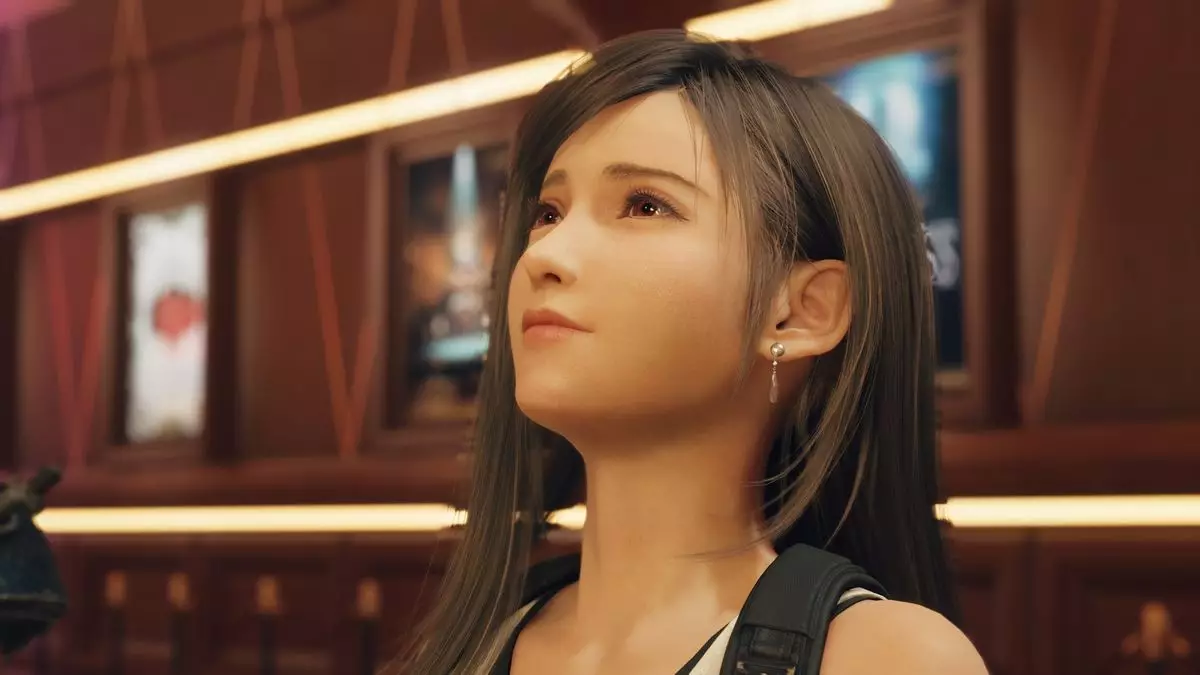In the realm of video game development, where innovation often clashes with the strenuous demands of an evolving industry, the importance of a stable and experienced team cannot be overstated. This sentiment was echoed by Naoki Hamaguchi, the director of Final Fantasy 7 Rebirth, amidst a backdrop of significant layoffs sweeping across the gaming landscape. His reflections on the longevity and synergy of his team over the past decade highlight not only their collective growth but also the critical role that experience plays in creating high-quality gaming experiences.
As the studio celebrates its achievements at events like the Golden Joysticks Awards 2024, where Final Fantasy 7 Rebirth garnered accolades in four out of six categories, Hamaguchi’s laughter underscored the optimism of a team still dedicated to completing their trilogy. He pointed out that as they work tirelessly on the third installment, the foundation laid by their years of collaboration equips them with the knowledge and skills necessary to tackle future projects. In an industry notorious for its instability, retaining a cohesive and skilled team amidst broader market uncertainties represents a significant achievement.
While the eye is firmly trained on the final chapter of the Remake trilogy, Hamaguchi tantalizingly hints at the future direction of the franchise. The potential paths range from launching the next numbered Final Fantasy title to creating an entirely new intellectual property. Such possibilities speak to a forward-looking vision, grounded in the lessons learned and expertise accumulated over the years. This approach reflects a broader trend within the gaming industry, where established franchises are expanding into fresh narratives and gameplay mechanics.
The anticipation around what comes next is palpable among fans and developers alike. Hamaguchi’s excitement is infectious as he foresees the application of their hard-earned insights to whatever future endeavors await. This perspective serves not only to highlight the notion of creative evolution but also reinforces the idea that the history of a team shapes its ability to innovate.
The gaming sector has been marked by significant upheavals, such as layoffs, studio closures, and exorbitant acquisitions, prompting reflections on how organizations adapt and survive. Hamaguchi’s comments reveal an industry grappling with the implications of these changes. He notes the strategic acquisitions made by companies like Sony and Microsoft, which appear to stem from a challenge: developing high-quality games within an increasingly demanding technical landscape.
Hamaguchi articulates a crucial observation—that the essence of successful game development lies in the hands of experienced teams capable of navigating these complexities. The scenario of onboarding inexperienced teams onto large-scale projects can lead to frustrating outcomes; hence, relying on seasoned professionals often becomes the most viable option. Such sentiments are particularly relevant in an industry where player expectations for immersive and polished experiences continue to grow.
In reflecting on his own team’s journey throughout the Final Fantasy 7 Remake trilogy, Hamaguchi expresses gratitude for their shared commitment and evolving skillset. The stability of the same group over a decade not only fosters familiarity but also builds a collective expertise unique to their projects. Each challenge faced along this journey has contributed to a reservoir of knowledge that fundamentally enhances their capability to deliver exceptional games.
As the industry witnesses a shift toward an increased emphasis on team dynamics, collaboration, and shared growth, the Final Fantasy 7 team stands out as a model of resilience. Hamaguchi’s acknowledgment of their experiences underlines the value of having a dedicated group that continuously learns and adapts, fostering a culture of creativity and excellence.
The narrative woven by Naoki Hamaguchi regarding the Final Fantasy 7 Remake trilogy offers valuable insights into the interplay between experience, teamwork, and the ever-evolving demands of the video game industry. As they finalize their current project and set their sights on future endeavors, the lessons learned and the foundation built over the past decade will undoubtedly shape their approach and ambitions moving forward. In a volatile landscape, the power of a cohesive, experienced team becomes not just an asset, but a cornerstone for future success.

